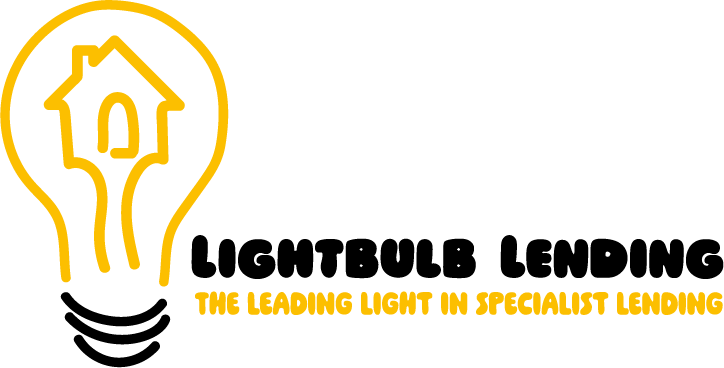Welcome to Lightbulb Lending’s mortgage knowledge hub, where we’re all about illuminating your financial future, especially when the path ahead feels a little uncertain. Whether you’re exploring options to manage your monthly repayments, consolidate debt, or release equity, remortgaging can be a powerful financial tool, especially if life hasn’t gone exactly to plan.
At Lightbulb Lending, we specialise in remortgage solutions for clients with adverse credit, offering free consultations, obligation-free quotes, and a personalised approach tailored to your circumstances. We believe that everyone deserves access to fair financial opportunities, no matter their credit history. And that’s what this blog is all about.
In this comprehensive guide, you’ll learn everything you need to know about remortgaging, what it is, when you should consider it, its benefits, and how we can help you through the process, especially if your credit score isn’t perfect. Get in touch with us today for more information!
What is remortgaging?
Let’s start with the basics. Remortgaging is the process of switching your existing mortgage to a new lender or a new deal, without moving home. In essence, it involves replacing your current mortgage with a new one that better suits your needs.
Here’s how it typically works:
Your new lender pays off your existing mortgage.
You begin making monthly repayments to your new lender.
The aim is often to secure a better interest rate, reduce monthly repayments, or unlock equity in your home.
Most homeowners explore remortgaging when their fixed-term deal is about to expire, as lenders will often move you to a Standard Variable Rate (SVR), which tends to be significantly higher.
But there are many reasons why you might want to remortgage, which brings us to our next point…
When should you consider remortgaging?
There’s no one-size-fits-all answer, but here are the most common scenarios when remortgaging could be the right move:
1. Your Fixed-Term Deal is Ending
When your current mortgage deal expires, typically after 2, 3, or 5 years, you’ll often be moved to your lender’s Standard Variable Rate (SVR). This can result in a noticeable increase in your monthly payments. Remortgaging before this happens can save you money. Most people don’t realise how much their repayments can rise on an SVR, and it can be a nasty shock. Acting in advance gives you the chance to shop around and secure a better rate with minimal disruption.
Tip: Start the remortgage process 3–6 months before your current deal ends.
2. Interest Rates Have Dropped
If market rates have decreased since you first took out your mortgage, you might be able to secure a lower interest rate by remortgaging. This could cut your monthly repayments and reduce the total cost of your mortgage over time. Even a small reduction in interest rate can lead to significant savings over the life of your mortgage. Timing is key here, as waiting too long could mean missing out on the most competitive deals.
3. You Want to Consolidate Debt
Struggling with unsecured debts like credit cards or loans? Remortgaging to consolidate debt can help simplify your finances by rolling multiple payments into one. Be mindful, though, this may extend your mortgage term and cost more overall if not managed carefully. It’s a popular strategy for reducing stress and improving cash flow, especially if your other debts have high interest rates. However, it’s essential to weigh up the long-term financial impact before committing.
4. You Need to Raise Funds
Want to fund home improvements, help a family member, or pay for a major expense? Equity release via remortgaging allows you to unlock some of the value tied up in your property. You borrow more than you currently owe and receive the difference in cash. This can be a practical alternative to taking out a separate loan or using high-interest credit. Just be sure you’re comfortable with the increased mortgage amount and monthly repayments that come with it.
5. Your Property Has Increased in Value
If your home has risen in value since you first took out your mortgage, your Loan-to-Value (LTV) ratio may have improved. This can unlock access to better deals with lower interest rates. A lower LTV is attractive to lenders, as it means you’re borrowing less relative to your home’s value. As a result, you’re likely to qualify for more competitive mortgage products.
6. You Want to Change the Mortgage Term
Looking to pay off your mortgage sooner or reduce monthly costs by extending the term? Remortgaging gives you the flexibility to adjust your repayment schedule according to your goals. Shortening the term may increase monthly payments but reduce overall interest paid. Conversely, lengthening it can ease your monthly burden, though you may pay more in interest over time.
7. You’re Unhappy With Your Lender
Poor customer service, inflexible terms, or slow processing can leave you feeling stuck. A remortgage can give you a fresh start with a new provider who better aligns with your expectations. If your current lender isn’t meeting your needs, switching can improve your experience and ensure your mortgage is handled more efficiently. Customer service matters, especially with long-term financial commitments.
8. You Have Adverse Credit and Want a Better Deal
Even with bad credit, remortgaging is possible. At Lightbulb Lending, we work with lenders who consider your full financial picture, not just your credit score. This means you still have options, even if traditional lenders have turned you down. With the right support and advice, a remortgage could be a step towards rebuilding your credit profile.
Important: Remortgaging with adverse credit can take a little longer, so give yourself plenty of time and consult an expert early.
If your circumstances have changed or your mortgage deal is nearing its end, it’s worth exploring your options. Remortgaging could save you money, reduce stress, and give you greater control over your finances.
The Benefits of Remortgaging
Remortgaging can feel like a chore, but done right, it can be a smart and empowering financial move. Let’s take a closer look at the potential benefits:
- Lower Monthly Repayments
By switching to a lower interest rate, you can significantly reduce your monthly outgoings, freeing up cash for other priorities. This can make a big difference if you’re managing other rising costs or aiming to increase your monthly savings.
- Access to Better Rates
If your financial circumstances have improved, or your home has increased in value, you might qualify for more competitive mortgage products. Lenders often reserve their best rates for borrowers with lower Loan-to-Value (LTV) ratios, meaning you could benefit from reduced long-term costs.
- Debt Consolidation
As mentioned earlier, remortgaging can help you manage debts by rolling them into one affordable payment. This could reduce the amount of interest you’re paying overall. It can also simplify your finances and reduce the stress of juggling multiple repayment dates.
- Raise Funds for Other Purposes
Remortgaging allows you to release equity for things like home improvements, university fees, weddings, or to support a loved one. Accessing these funds through your mortgage can often be more cost-effective than using unsecured credit or personal loans.
- Financial Stability
By securing a new fixed-rate mortgage, you can protect yourself against future rate hikes, making your monthly expenses more predictable. This stability is especially valuable during periods of economic uncertainty or when interest rates are expected to rise.
- Switching to a More Flexible Deal
If your current mortgage has rigid terms, switching to a product with overpayment options or payment holidays can offer more flexibility and control. Flexibility allows you to adapt your mortgage to life changes such as maternity leave, career shifts, or unexpected expenses.
- Improving Your Financial Position (Even With Bad Credit)
By working with the right lender, you can secure a deal that helps you rebuild your credit history over time, opening up future opportunities. Making consistent mortgage payments on a new deal can gradually improve your credit profile and broaden your financial options down the line. Pro Tip: Even if you’re not sure whether remortgaging is the right step, a free consultation can help clarify your options.
Remortgaging isn’t just about saving money, it’s about creating a mortgage that fits your life now. Whether you need flexibility, funds, or peace of mind, it could be the financial refresh you’ve been looking for.
How can Lightbulb Lending help?
At Lightbulb Lending, we understand that life doesn’t always go to plan. Adverse credit? Missed payments? Defaults? We get it, and we’re not here to judge. We’re here to help.
- Expertise in Adverse Credit
We specialise in helping people remortgage even when their credit report isn’t perfect. Our experienced advisors work with lenders who don’t rely solely on credit scoring.
- Tailored Recommendations
We take the time to understand your financial goals, matching you with the right lender and the right product for your situation.
- FREE, No-Obligation Consultations
We’re not here to add to your financial stress. That’s why we offer free, no-pressure advice.
- Fast Turnaround Times
When it comes to remortgaging, timing matters. We work efficiently to ensure things progress quickly and smoothly.
- Outstanding Customer Service
Our clients consistently rate us ★★★★★. We go the extra mile—because you deserve nothing less.
- A Human Touch
You’re not just a number. You’re a person with real goals, challenges, and dreams. We treat you that way.
Ready to explore your options? Get in touch for a free consultation today.
Light Up Your Future: Final Thoughts on Remortgaging
Whether you’re chasing a better rate, planning a home renovation, or managing credit challenges, remortgaging can help you take back control of your finances.
Yes, the process might seem overwhelming at first, but you don’t have to navigate it alone. With the right guidance and support, you could unlock real savings, better deals, and a stronger financial future.
At Lightbulb Lending, we’re here to walk the journey with you, step by step, with honesty, clarity, and care. Get in touch with us today for more information and see how we can help!
FAQs
1. What is a remortgage?
A remortgage is when you switch your existing mortgage to a new deal or lender, often to get a better interest rate or release equity.
2. Can I remortgage with bad credit?
Yes! Many lenders are open to working with those who have adverse credit. Lightbulb Lending specialises in these situations.
3. When should I start the remortgage process?
Ideally, start 3–6 months before your current mortgage deal ends to avoid moving onto a higher SVR.
4. Can I consolidate debt by remortgaging?
Absolutely. You can combine multiple debts into your mortgage to simplify repayments.
5. Will remortgaging save me money?
It can, especially if you’re moving from a high interest rate to a more competitive deal.
6. Are there any fees involved in remortgaging?
Yes, there may be arrangement, legal, or valuation fees. However, many deals come with incentives like fee-free options.
7. Can I change my mortgage term when remortgaging?
Yes. You can choose a shorter or longer term depending on your financial goals.
8. How does credit score affect remortgaging?
A strong score improves your chances of getting the best rates, but even with bad credit, options are available.
9. Can I release equity with a remortgage?
Yes, many homeowners use remortgaging to fund large expenses like renovations or education.
10. What happens if my application is rejected?
Don’t worry. At Lightbulb Lending, we work with a wide panel of lenders. If one says no, we help find one that says yes.
Take the First Step To Your Dream Home Today
At Lightbulb Lending, we believe your financial history shouldn’t define your future. Whether you’re ready to remortgage or just curious about your options, our team is here to help. Contact us for your FREE consultation today.


